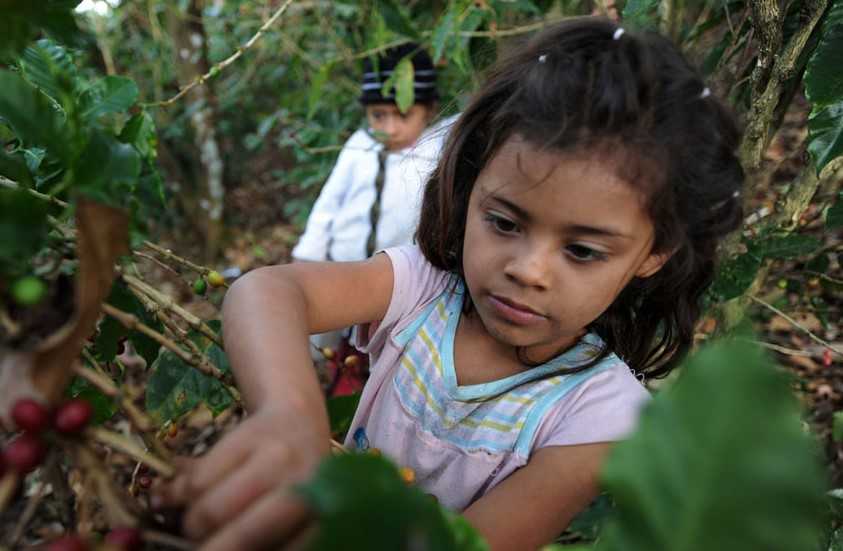Finnish corporate social responsibility watchdog organisation Finnwatch published last week a comprehensive report which looks into working conditions at coffee farms and plantations in Brazil, India and Honduras. The report draws from interviews with farmworkers at altogether nine farms.
A living wage appears still a distant dream to most coffee farm workers; child labour, discrimination and high recruitment fees are other examples of some of the key field research findings detailed in greater length in Finnwatch’s report.
The investigates farms have supplied at least one of the major Nordic coffee roasters such as Arvid Nordquist, Gustav Paulig, Löfbergs Lila and Meira, which is part of the Massimo Zanetti Beverage Group.
– In Honduras, workers’ low salary levels have led to widespread child labour. Child labour was found at all investigated farms in Honduras, including certified farms. The youngest interviewees for our report were just 5 to 6 year-olds, said Finnwatch researcher Anu Kultalahti.
At the investigated Tata Coffee plantation in India, the biggest problems reported by the workers’ were related to high recruitment fees. Seasonal migrant workers had to pay up to one third of their earnings to the labour broker who recruited them. Finnwatch notes that extortionate recruitment fees can lead to debt bondage, a form of forced labour.
In Brazil, working conditions were the best of all investigated farms, and largely in line with national legislation. Still, some problems were found also in Brazil. For example, at a plantation owned by the Massimo Zanetti Green Coffee Group, recruitment practices were found to be systematically discriminatory towards women.
Even though the working conditions in the coffee sector in Brazil have improved, Finnwatch urges caution from companies which source coffee from Brazil.
– Several exporting companies and cooperatives that supply European roasters have been connected to farms were the Brazilian authorities have found working conditions analogous to slavery, said Kultalahti.
Finnwatch gives credit to coffee industry actors for having significantly increased the proportion of social sustainability standard compliant green coffee in their purchases. Of the Finnish coffee market actors, the Swedish coffee roasting company Arvid Nordquist and Finnish retailer Kesko stand out in comparison as all their own brand coffee products are already certified.
The sustainability targets of the German retail giant Lidl however, are lacking in ambition, whereas Meira and the Finnish sourcing company Tuko Logistics have no set sustainability targets at all for their green coffee purchases.
Although Finnwatch does recommend to coffee companies that they switch to certified green coffee, there remains lots to do also to further improve the certification schemes.
– Our research found serious problems also at certified farms. Both certification schemes and many of the coffee industry’s own sustainability initiatives have long ignored problems in regard to hired labour. This needs urgent attention, said Kultalahti.
Finnwatch is also critical of ‘direct trade’ sourcing model favoured by several of the smaller roasting companies. Coffee sourced through direct trade is often marketed to consumers as an ethical choice but in Finnwatch’s view, the claimed sustainability in direct trade is currently still largely based on trust and unverified assumptions.
Download here the full report.




















